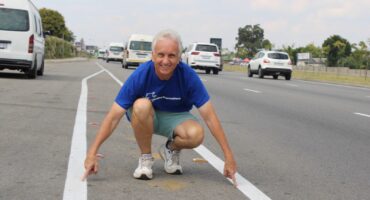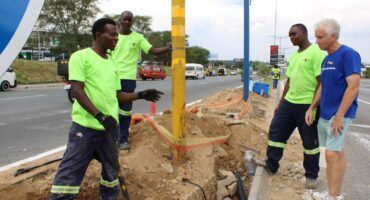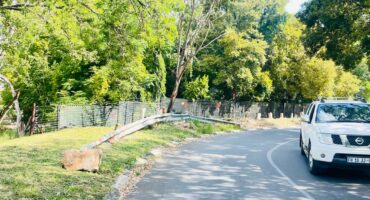Covid-19: Health MEC says Johannesburg remains a Covid-19 hotspot
Health MEC Bandile Masuku said that they take solace in the increasing number of recoveries from Covid-19.

The Gauteng Provincial Command Council gave an update on the response to Covid-19 in the province during a virtual briefing on 10 July.
Health MEC Bandile Masuku gave an update on the province’s comprehensive health response. He said that Gauteng is currently the province with the highest number of cases in the country. Gauteng has 34 per cent of all confirmed cases in the country and 47 per cent of active cases.
He said that they are pleased to see a high recovery rate and there has not been a surge in the number of people who have died due to Covid-19. The first surge was due to the opening up of the mining sector and the second surge occurred when more businesses began to open up.
Masuku said that Johannesburg remains one of the hotspots. “What we take solace in is the number of increasing recovered [cases]… most of the active cases are still not within our facilities, many people have mild symptoms or are asymptomatic.
“Johannesburg is still our main problem but we are getting there in consolidating and making sure that people are recovering.” He highlighted that Region F has the highest number of active cases within Johannesburg.
Masuku said that areas around townships and the inner city areas in Ekhuruleni, Tshwane and Johannesburg have the highest number of cases.
He added that the backlog of test results has been cleared which has also contributed to an increase in the number of confirmed cases. “We need to applaud our laboratory workers who have done quite well.”
Earlier, the MEC and his team visited Tshwane District Hospital to showcase the work they have done to prepare the hospital. He said that wards which were refurbished in Dr George Mukhari Academic Hospital are also in use.
The field hospital in Nasrec has also been prepared with additional beds equipped with oxygen. “By the time we get to 31 July, we will already have almost 700 beds for this function.”
Masuku said that they have established a bed management bureau between the public and private sector to manage all available beds and to direct traffic and emergency services to specific hospitals. He said that there are close to 11 000 beds available in the public and private sector.
As of 10 July, there are about 3 000 people who have been admitted to hospitals and 187 are on a ventilator in public and private hospitals. “It is important to indicate that since March when our response started, we have only admitted 5 784 people, this is a figure that is reasonable and we take solace in that regard.”
He said that hypertension and diabetes have been a common factor in those who have died due to the virus. Masuku added that a disturbing trend that they have noticed is that the majority of those who have been admitted to hospital and died came to the hospital in an already serious condition and spent on average one day in hospital before they died.
He said that 2 630 public servants have tested positive for the virus in the province, which includes teachers and healthcare workers.
Masuku reiterated that there are no mass graves which are being dug, nor is there a tender available for this. He said that they were checking the capacity of gravesites. “What has occurred is not about digging, it’s not about tenders, there are no gravesites that are being dug.
“Our response plan since March has been about saving lives. It has been about making sure that we are able to make sure that people who enter our facilities, leave them alive. All the preparation that we’ve put in place is about saving lives.”
He said that there are enough hospital beds despite increasing pressure and there is the capacity to assist those who need it. “We are putting triage tents in all our facilities to make sure we decongest our accident and emergency departments, which by and large have a bigger problem with congestion.”
He concluded that lockdown regulations need to be strictly adhered to and people should avoid going out and attending social gatherings. “We still have a role to play as a society and a community to make sure we disrupt and reduce the rate of infection… one of the best mechanisms to protect ourselves is to treat everyone that we meet as though they have tested positive for Covid-19 and maintain a two-metre distance.”
* Notice: Coronavirus reporting at Caxton Local Media aims to combat fake news
Dear reader,
As your local news provider, we have the duty of keeping you factually informed on Covid-19 developments. As you may have noticed, mis- and disinformation (also known as “fake news”) is circulating online. Caxton Local Media is determined to filter through the masses of information doing the rounds and to separate truth from untruth in order to keep you adequately informed. Local newsrooms follow a strict pre-publication fact-checking protocol. A national task team has been established to assist in bringing you credible news reports on Covid-19.
Readers with any comments or queries may contact National Group Editor Irma Green ([email protected]) or Legal Adviser Helene Eloff ([email protected]).




